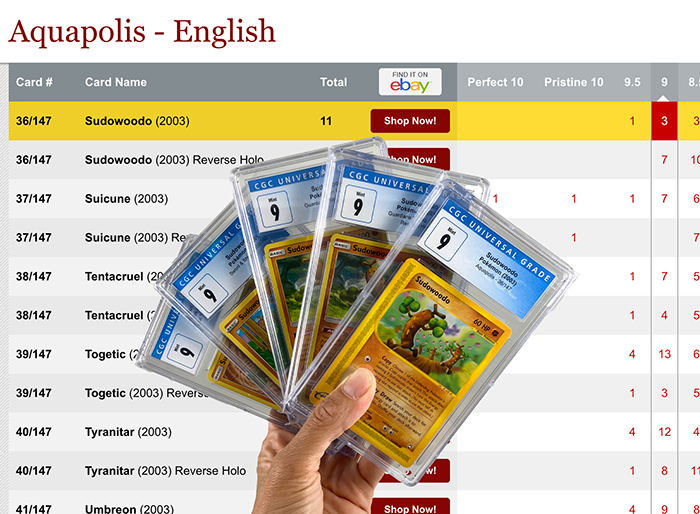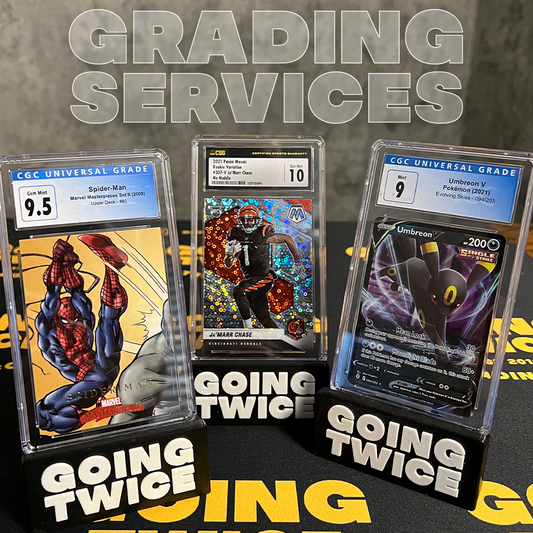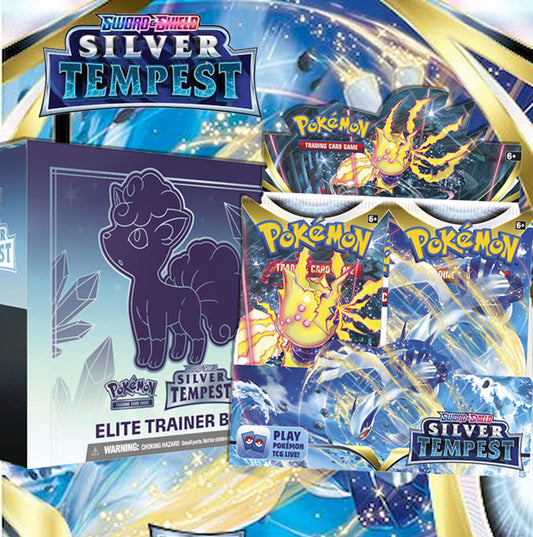
Why is Grading Important?
Share
WHO WANTED GRADED CARDS IN THE FIRST PLACE?
Let's take a stroll down memory lane and look at the history of grading trading cards and why it is so important today for Pokemon collecting and the hobby in general.
So who wants graded cards?

Well, in 1991, when PSA first opened, the answer was “almost nobody”. There had been attempts in the past, notably Accugrade Sportscard Authentication (ASA) in 1984, to bring third party authentication and grading into the collecting field, but it hadn’t stuck. Enter the “dot-com bubble” and the rise of eBay.
POV: you are sitting in front of your computer looking at a Mark McGuire rookie card in 1998. He and Sammy Sosa are duking it out to see who will be the new home run king. This wild new site “eBay” has the exact card you are looking for. The only issue is the two photos are grainy and you can't tell if that’s a fat crease in the middle of the card or just poor lighting. Wouldn’t it be so nice to have a professional you trust tell you exactly what you’re getting?
Situations like this as well as a renaissance of sports card collecting combined to create a huge demand for the exact services PSA offered in the late 1990’s.
They wouldn't be alone for long however. SGC began taking submissions in 1998, and had to multiply their grading staff by almost 10 in a matter of two months to keep up. Beckett, previously a trusted price guide and magazine publisher, wasn’t going to miss out and began their own grading operation in 1999. In 2000, CGC cut their own path in what was now a very crowded market, offering professional grading services for comics and building a reputation for their strict and accurate grading in the field.
Why grade your cards?
Well, if you are like a lot of collectors, you don’t! Grading can be a pain, wait times can be long, and the cost sometimes can’t be justified by the collector. The grades you will receive can’t be predicted with certainty ahead of time, and many collectors choose to simply buy cards that have already been graded by someone else.
However, there are a lot of upsides to having your card “slabbed up” and sometimes it’s worth the time and money to get it done yourself.
Protect your precious cards
As anyone who has ever had cards exposed to moisture can attest, it really, really sucks to end up with moldy, warped, or soggy cards. Or the horror of finding a stack of first edition Neo Genesis cards that were rubber banded together a decade ago and now have crusty rubber stuck to their edges. Not, you know, that I’ve ever done that to my cards… Anyway, grading or encapsulating your cards is a sure-fire way to preserve them, hopefully, in their original, pristine condition. It protects them from the elements and allows for safe handling of the cards if you’re the kind of collector that enjoys holding your cards while gazing lovingly at them (I mean, don’t we all?). There are also some cool slab displays on the market that allow you to show off and showcase your favorite cards.
Authentication and the "Pop Report"

As discussed earlier, the biggest potential value of grading your cards is to authenticate them and establish their condition on a universal scale that other buyers and sellers understand. With BGS, PSA, and CGC being the largest graders in Pokemon at the moment, the set name and Pokemon will be written in English on the label, but the numerical grade is understood globally. Trust in these companies’ accuracy allows a buyer to know what quality a “PSA 7” or a “CGC 9” card will be, and with that knowledge understand what they would be willing to buy the slab for. This guarantee of quality and authenticity allows your collection to have a viable place in the market going forward if you ever decide to sell.
In the past three months, CGC joined PSA, SGC, and BGS, and finally launched their own population report for their graded cards. This means that anyone can now find out how many of a certain card have been graded by CGC, and how many of those cards have attained certain grades. This feature can add a lot of value, particularly for vintage cards that won’t be graded in the future with much or any frequency.
Scarcity drives prices, and these population reports help many collectors to decide the price which they are willing to pay for certain items, and how to value the ones they already have. These reports also help with a card’s long term value. For example, if you own one of 13 graded “10” of a particular card, and the set the card comes in is hundreds of dollars a pack and the print run was low, you can logically assume that the population of that card in a ten may never go up or will go up only slightly. Therefore if you choose to sell this card, you can price it knowing you may never see another one on the market. From the collecting side, rarity is fun to chase, and pop reports can add some spice to cards that otherwise may have been looked over.
The fun of collecting slabs
Slabs (aka graded cards) make a nice addition to any collection for some of the reasons stated above - the cards are protected, verified for authenticity, and have a knowable value on the open market. Grading a really memorable pull from your childhood (or adulthood) can be a lot of fun and a great way of preserving the memory and the card but so can the search for specific grades of certain cards. I, myself, am a huge Sudowoodo fan so I have a pretty decent (if I do say so myself) collection of graded Sudowoodo cards. Sudowoodo is shockingly underrepresented as a holo card for such an adorable Pokemon but does have decent representation as a non-holo and reverse holo. I have a lot of fun tracking down the different Sudowoodo cards from different sets and either buying already graded slabs or grading raws myself. The goal for me is to ‘upgrade’ whenever possible (i.e., going from a 9 to a 10). And you might have a preference for grading companies with PSA, CGC, and BGS being the most popular in the TCG market and PSA, SVG, and BGS for Sports. At Going Twice, we pride ourselves on being a highly respected purveyor of graded cards both through Proxibid and Whatnot. You can see the latest deals on Proxibid in our weekly auction highlights. And check out our list of Whatnot channels on goingtwice.com. You can find some awesome deals on all kinds of slabs and have fun in the process! Why deal with the hassle of grading yourself when we've already done it for you?!
In related news, CGC just came out with an online registry for Pokemon and Magic that allows you to add your CGC graded cards to your own online registry to keep track of your slabs, see what you're missing, and see how your collection measures up to other collectors! This seems like another home run for CGC! Is there nothing these guys can't do?!
My advice, collect what you love and have fun doing it! Give yourself a budget, decide if you want to hunt down raw cards or graded cards, and start collecting!



